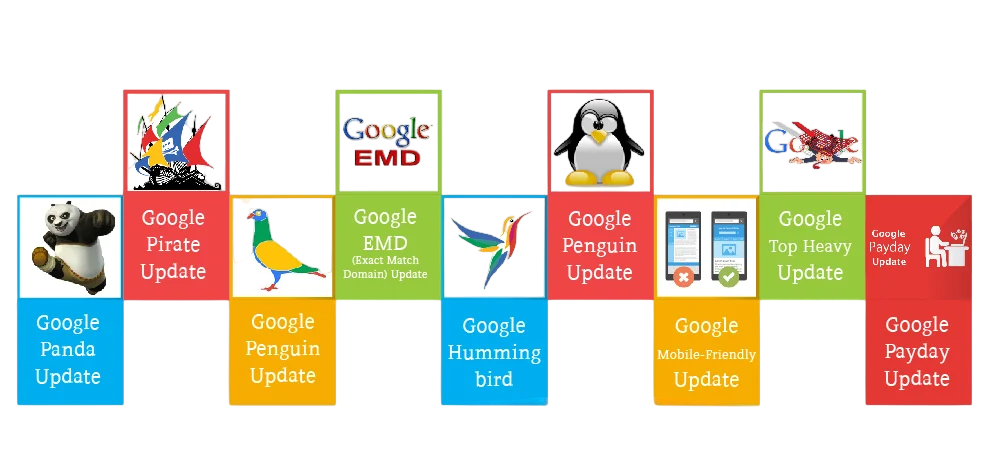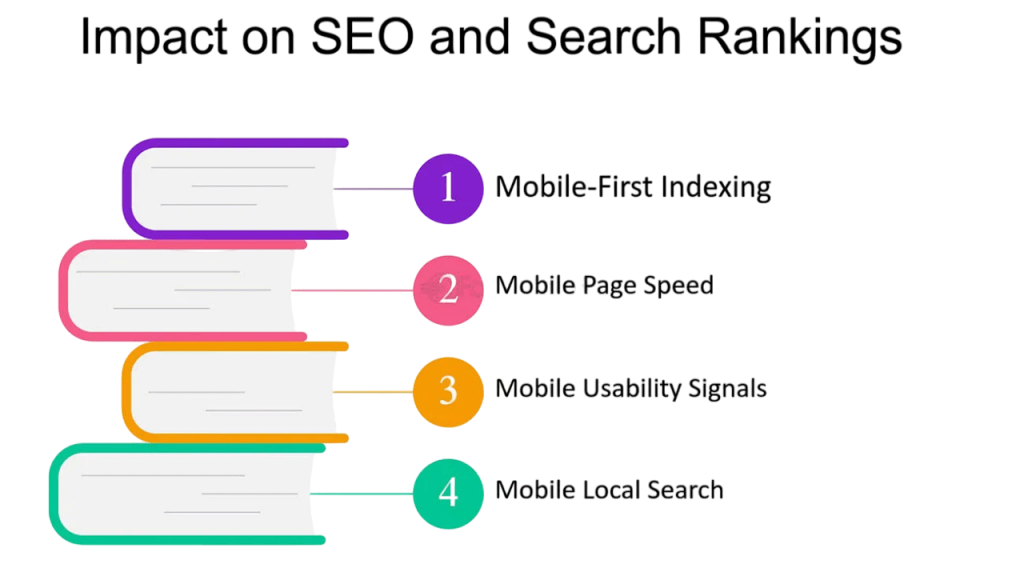
- Introduction to Google Algorithms
- Purpose of Algorithm Updates
- Major Updates in History (Panda, Penguin, etc.)
- Core Algorithm Updates Explained
- Impact on SEO and Rankings
- Recovering from Penalties
- How to Stay Compliant
- Conclusion
Introduction to Google Algorithms
Google algorithms are a complex system of rules and calculations that determine how websites are ranked in the search engine results pages (SERPs). These algorithms are essential to ensure users get the most relevant and authoritative content in response to their queries. Google continuously refines its algorithms to improve search experience, maintain fairness, and prevent manipulation. While the exact inner workings are proprietary, Google publicly shares some of the major changes and updates to help webmasters and SEO professionals adjust their strategies.Google algorithms are complex sets of rules and processes that determine how search results are ranked and displayed to users. These algorithms analyze numerous factors such as keyword relevance, website quality, user experience, Digital Marketing Training and content freshness to deliver the most accurate and useful results for every search query. Since its inception, Google has continuously updated its algorithms to improve search quality and combat spam or low-quality content. Understanding how these algorithms work is essential for businesses and marketers aiming to optimize their websites for better visibility and higher rankings. By keeping up with algorithm updates and best Impact on SEO practices, website owners can ensure their content remains relevant and competitive in search results.
Ready to Get Certified in Digital Marketing? Explore the Program Now Digital Marketing Online Training Offered By ACTE Right Now!
Purpose of Algorithm Updates
The primary goal of Google algorithm updates is to enhance the quality and relevance of search results. These updates aim to promote content that is valuable, original, and trustworthy while demoting pages that attempt to game the system through spammy tactics, keyword stuffing, link schemes, or low-quality content. Updates also address evolving user behavior, mobile browsing trends, and emerging technologies. Ultimately, they aim to improve user satisfaction by ensuring that the content presented is useful, accessible, and timely.Google’s algorithm updates serve to improve the quality, relevance, and accuracy of search results for users. These updates help the search engine better understand user intent, filter out spammy or low-quality content, and reward websites that provide valuable, trustworthy information Become a Digital Marketing Specialist. By regularly refining the algorithms, Google aims to enhance user experience by delivering faster, more relevant, and trustworthy results. Additionally, updates address emerging challenges such as new types of web content, evolving search behaviors, and attempts to manipulate rankings through black-hat Impact on SEO tactics. For website owners and marketers, staying informed about these updates is crucial to maintaining or improving their search rankings and ensuring their content aligns with Google’s guidelines.
Major Updates in History
Over the years, Google has rolled out several major algorithm updates that have had significant impacts on SEO practices:
- Panda (2011): Targeted low-quality content and content farms. Emphasized the importance of original, high-quality content.
- Penguin (2012): Focused on unnatural link profiles and penalized manipulative link-building tactics.
- Hummingbird (2013): Improved the understanding of search intent and contextual relevance Choose a Career in Digital Marketing .
- Pigeon (2014): Enhanced local search results by tying them more closely with traditional ranking signals.
- Mobilegeddon (2015): Prioritized mobile-friendly websites in mobile search results.
- RankBrain (2015): Introduced AI and machine learning to better interpret search queries.
- Medic (2018): A broad core update that heavily impacted health, finance, and YMYL (Your Money or Your Life) sites.
- BERT (2019): Utilized natural language processing to better understand the context of words in search queries.
- Helpful Content Update (2022): Focused on demoting content primarily written for search engines rather than human users.
- In the case of a Panda hit, improving content depth, removing duplicate pages, and increasing engagement can help.
- For Penguin-related penalties, Removing spammy backlinks and disavowing low-quality links are key steps Market Research.
- For Helpful Content Updates, shifting focus to human-centric content and cutting down on overly optimized pages is crucial.
- Recovery can take time, and improvement in rankings might only occur after the next algorithm update or recrawl.
- Focus on creating original, relevant, and useful content.
- Avoid black-hat SEO techniques like cloaking, keyword stuffing, Copywriting or buying links.
- Ensure mobile-friendliness, fast page speeds, and secure browsing (HTTPS).
- Implement structured data to enhance search snippets.
- Keep up with industry trends and monitor SEO news.
- Regularly audit your website for technical and content-related issues.
- Build a natural backlink profile through quality content and outreach.

To Explore Digital Marketing in Depth, Check Out Our Comprehensive Digital Marketing Training To Gain Insights From Our Experts!
Core Algorithm Updates Explained
Core Algorithm Updates are broad changes to Google’s ranking processes. These are typically not targeted at specific issues but rather refine how Google evaluates content overall. Core updates can result in noticeable shifts in website rankings, even for pages that were previously performing well. These changes reflect a rebalancing of importance placed on various ranking factors such as content quality, expertise, user experience, and relevance. Unlike penalizations, core updates may cause ranking drops simply because better content is now recognized and prioritized.Core Algorithm Updates are significant changes made by Google to its search ranking system that impact how websites are evaluated and ranked in search results. Unlike minor tweaks, core updates often bring broad shifts in ranking factors SEO Keyword Research .search engines affecting a wide range of sites across various industries. These updates aim to improve Google’s ability to deliver relevant, high-quality content by refining how it assesses factors like content expertise, authority, trustworthiness, and user experience. Because core updates can cause noticeable fluctuations in website traffic and rankings, it’s important for site owners to monitor their performance closely after each update. Rather than targeting specific tactics, Google advises focusing on creating valuable, user-focused content and maintaining overall site quality to recover from any negative impact. Staying informed about core updates helps businesses adapt their search engine SEO strategies and maintain strong visibility in search results over time.
Impact on SEO and Rankings
Every algorithm update can lead to fluctuations in keyword rankings, organic traffic, and visibility. SEO professionals must understand that not all ranking drops are penalties; sometimes it’s just a matter of other content being more favorably reassessed.

High-quality content with strong E-A-T (Expertise, Authoritativeness, Trustworthiness), fast loading times, mobile optimization, and good user engagement metrics are more likely to remain resilient or even benefit from updates. On the other hand, sites with thin content, poor structure, Digital Marketing Training or excessive ads may experience setbacks.
Looking to Master Digital Marketing? Discover the Digital Marketing Expert Masters Program Training Course Available at ACTE Now!
Recovering from Penalties
When a website is affected by a Google update or receives a manual penalty, recovery involves identifying and rectifying the specific issues. For example:
How to Stay Compliant
Staying compliant with Google’s best practices requires a proactive approach to SEO. Here are some essential guidelines:
Preparing for Digital Marketing Job Interviews? Have a Look at Our Blog on Digital Marketing Interview Questions and Answers To Ace Your Interview!
Conclusion
Google’s algorithm updates play a crucial role in shaping the search landscape by continually improving the relevance and quality of search results. Understanding these updates helps businesses and marketers stay ahead of changes that can impact website rankings and traffic. By focusing on creating valuable, trustworthy content and adhering to best SEO practices, websites can adapt effectively to algorithm shifts and maintain strong visibility. Staying informed and proactive is key to leveraging algorithm updates as opportunities for growth rather than obstacles, Digital Marketing Training Core Algorithm Updates ensuring long-term success in the ever-evolving world of search




